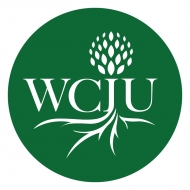Programme Detail: Visions for the Ideal City (MATUL)
| Language of this entry | English (USA) |
|---|---|
| Name of Programme / Training Resource | Visions for the Ideal City (MATUL) |
| Type of Training | Individual standalone programme |
| Reference Number | TUL500 |
| Description | This 15-week online course builds a Biblical theology overview that connects the motif of the Kingdom of God to issues of poverty, oppression, community development and church growth in urban poor communities. This is the M.A. in Transformational Urban Leadership (MATUL) program’s “lead” course, setting the stage for thinking Biblically about interventions within slum communities. It features extensive reading, community involvement, writing, and presentation – all oriented toward the acquisition of a theological “frame” for subsequent study. Theology: Foundational to applying the scriptures to the issues of the urban poor is an understanding of the panorama of the scriptures, its main books and themes. However, most Bible Surveys are written from Western perspectives that deal with only the spiritual but ignore the breadth of the relationship of the Kingdom of God to the social, economic and political aspects of life. This course is designed to touch on most of the books of the Bible, their themes and from them relate to themes the urban poor deal with. Development Theories and Issues: Parallel to this theological panorama, the themes (readings of the scriptures from the perspective of the poor, urbanization, migration, oppression, community development, land etc.) are applied to current community development philosophies. Praxis: Praxis is a theological term for doing theology in action. The first step is engagement then entering into conversation. The action might cause the engagement or be a result of all the conversation. This whole degree is built around a concept of Transformational Conversations – conversations that link the “God conversation” and the “city conversation”. This course could anchor these at upper level urban and development theories and city leadership conversations, but instead seeks to engage the students mostly with common people in the neighborhood. Each week students will engage the local community, seeking an understanding from their stories of their cultural perspective on the week’s theme. They will seek to communicate the stories of the scripture around that theme as part of a process of dialogical communication into a pre- or post-Christian context. |
| Keywords | Theology Urban poor Urban mission Urban Theology Jubilee Transformation |
| Languages Programme Available in | English (USA) |
| Other Languages | |
| Country and region where programme is available | |
| Area of Ministry and Focus | Bible Teaching and Training / Old Testament; Bible Teaching and Training / New Testament; Bible Teaching and Training / Theology; Personal Life and Holiness / Integrating Faith, Life and Work |
| Residential/Non Residential | Non Residential |
| Full-time or Part-time | Full-time |
| Level | Introductory |
| Cost Range | From US$1,000 to less than US$10,000 |
| Actual Cost | $540-$1,350 USD (depending on student's national location) |
| Bursaries/scholarships available | |
| Actual Length | 15 weeks |
| Average hours of study per week | 10 |
| Methods of instruction | |
| Percentage of time spent in formal learning (e.g. lectures, structured reading, work-books, etc.) | |
| Percentage of time spent on non-formal skill-based learning (e.g. learning on the job and supervised practice, etc.) | |
| Percentage of time spent in informal unstructured learning (e.g. prayer times, teamwork). | |
| Average number of students who take the programme per year (or, if this is a new programme, the number who can be accommodated) | 0 |
| Prerequisite Programmes | |
| Other Prerequisites | |
| Qualifications gained | |
| Qualifications this programme is part of | |
| Programme Accredited by | Other Accreditation (see below) |
| Other Accrediting Bodies | Distance Education Accrediting Commission (DEAC) |
Copyright © 2024 William Carey International University
